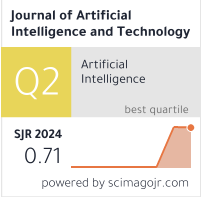A Fully Convolutional Neural Network-based Regression Approach for Effective Chemical Composition Analysis Using Near-infrared Spectroscopy in Cloud
DOI:
https://doi.org/10.37965/jait.2020.0037Keywords:
nicotine, tobacco leaves, near-infrared spectroscopy, fully convolutional network, cloud computingAbstract
As one chemical composition, nicotine content has an important influence on the quality of tobacco leaves. Rapid and non-destructive quantitative analysis of nicotine is an important task in the tobacco industry. Near-infrared (NIR) spectroscopy as an effective chemical-composition analysis technique has been widely used. In this paper, we propose a one-dimensional Fully Convolutional Network (1D-FCN) model to quantitatively analyze the nicotine composition of tobacco leaves using NIRspectroscopy data in a cloud environment. This 1D-FCN model uses one-dimension convolution layers to directly extract the complex features from sequential spectroscopy data. It consists of five convolutional layers and two full connection layers with the max-pooling layer replaced by a convolutional layer to avoid information loss.Cloud computing techniques are used to solve the increasing requests of large-size data analysis and implement data sharing and accessing.Experimental results show that the proposed 1D-FCN model can effectively extract the complex characteristics inside the spectrum and more accurately predict the nicotine volumes in tobacco leaves than other approaches. This research provides a deep learning foundation for quantitative analysis of NIR spectra data in the tobacco industry.
Metrics
Published
How to Cite
Issue
Section
License
Copyright (c) 2021 Authors

This work is licensed under a Creative Commons Attribution 4.0 International License.





